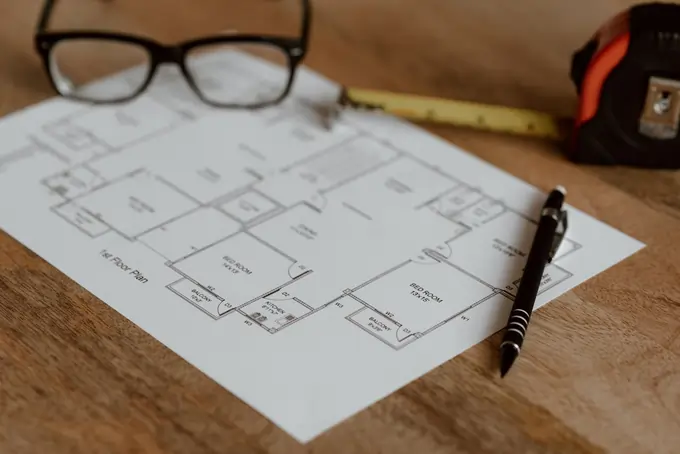
Ultimate Guide to Mortgage, Home Buying and Homes for Sale
Ready to dive into the crazy world of home buying? Our Ultimate Home Buying Guide: How to Buy a House in 2024 is here to make it a breeze. From start to finish, we’ve got your back with this step-by-step mortgage guide. Say goodbye to confusion and hello to your new home!
What Are the Essential Steps in the Home Buying Process?
Alright, so you’re diving into this wild ride called home buying. First, save up a down payment, ideally around 3.5% if you’re going with an FHA loan. Then, check your credit score and get pre-approved. After that, start house hunting like a pro and finally, close the deal!
Understanding the buying process
Buying a home is a complex process with many steps involved. The key stages include getting pre-approved for a mortgage, finding the right home, making an offer, and closing the deal. Understanding each step is crucial for a smooth home buying experience.
Choosing Your Dream home for sale
Once you have your finances in order, it’s time to start house hunting. Identify your must-have features, preferred locations, and budget range. Work with a good real estate agent who can help you navigate the market and find the perfect home.
Initial Preparations Before You buy a house
Before you begin the home buying process, there are a few crucial steps to take. Check your credit score, as it impacts your mortgage interest rates and loan eligibility. Save for a down payment (ideally 20% of the home’s value) and closing costs. Get pre-approved for a mortgage to show sellers you’re a serious buyer.
How Does a Mortgage Work?

Thinking about home buying? Basically, you borrow money from a bank to get your dream house, and that’s called a mortgage. Usually, you gotta pay back the loan over a span of 15 to 30 years. For instance, FHA loans require just a 3.5% down payment, making home buying more affordable.
What is a mortgage and why do you need it?
A mortgage is a loan that allows you to borrow money from a lender to buy a home. Most people can’t afford to pay the full price upfront, so a mortgage allows you to finance the purchase over 15-30 years. Making consistent monthly payments is crucial to repay the loan and eventually own the home outright.
Types of Mortgages: FHA loan, VA loans, and more
Conventional loans (backed by Fannie Mae or Freddie Mac) require a minimum 3% down payment. FHA loans (backed by the Federal Housing Administration) allow as little as 3.5% down for first-time buyers. VA loans (backed by the Department of Veterans Affairs) offer 0% down for eligible military members and veterans. Each loan type has different eligibility requirements, so research your options.
How to apply for a home loan
To apply for a mortgage, you’ll need to provide financial documentation like tax returns, pay stubs, and bank statements. Shop around with multiple lenders to find the best rates and terms. Get pre-approved before making offers – this shows sellers you’re a qualified buyer.
What Do First-time Home Buyers Need to Know?
If you’re diving into home buying, there’s a bunch you need to know! First off, that 3.5% down payment everyone talks about is for FHA loans, which could be perfect if your credit isn’t stellar. Always keep an eye on the different options available to make your first home buying journey smoother and smart!
Crucial Tips for first-time home buyers

As a first-timer, it’s important to educate yourself on the buying process and key terms. Ask lots of questions and don’t be afraid to lean on professionals for guidance. Stick to your budget and be realistic about what you can afford. Be prepared for additional costs like moving expenses, furniture, and renovations.
Common Mistakes First-timers Make During homebuying
Some common pitfalls include overlooking hidden costs, getting swept up in a bidding war, skipping the home inspection, and misunderstanding mortgage terms. Read your documents carefully and ask for clarification when needed. Don’t rush into a purchase you may regret.
Special Programs and Loans for first-time home buyers
First-time buyers have access to special programs and loans that make homeownership more accessible. FHA loans allow lower down payments and credit scores. Many states and cities offer assistance programs, grants, and tax credits for first-time buyers. Research these options in your area.
How Do You Set a Budget and Determine How Much Home You Can Afford?
When you’re home buying, start by figuring out a budget and how much home you can afford. First, look at your monthly or annual housing expenses. Usually, you need as little as 3 to 3.5% down payment, but don’t forget to cover closing costs too.
Your lender will underwrite your loan and check your mortgage debt. Be sure to save a few months of payments as a cushion. Also, a home inspection and appraisal are must-dos before finalizing anything. Finally, find an agent to help you navigate all these steps.
Using a home affordability calculator
Online affordability calculators can give you a rough estimate of how much home you can afford based on your income, debts, and expected down payment. Input your financial details to get a max home price range. Remember, this is just an estimate – your lender will do an official evaluation.
Calculating Your debt-to-income ratio

Your debt-to-income ratio (DTI) is a key factor that determines how much home you can afford. To calculate DTI, divide your monthly debt payments by your gross monthly income. Most lenders look for a DTI of 43% or less for mortgage approval.
How Much Should You afford to spend?
As a general rule, your mortgage payment should not exceed 28% of your gross monthly income. Keep in mind that on top of your mortgage, you’ll have insurance, taxes, utilities, and maintenance costs. Buy a home comfortably within your budget to avoid becoming “house poor”.
How Can You Improve Your Credit Score Before Buying?
So, you want to buy your first home and you’re wondering how to improve your credit score before home buying. If you’ve got a score of 580, you might qualify for FHA loans with as little as 3.5% down, but loan programs vary. Improving your score can mean better rates and more options.
Need to make a down payment? You can use gift money to help if you’re short on funds. Just keep in mind, your loan officer and lender will have rules about how this works. Some loan payments might require a down payment higher than 3%.
To gauge how much mortgage you can handle, calculate your DTI (debt-to-income ratio) by dividing your total monthly debt by your gross monthly income. If your ratio is too high, a lender may require a higher down payment. It’s crucial since you must meet income requirements to qualify for a loan that can cover your mortgage.
Before securing financing, your agent will negotiate to ensure the seller will pay some of the closing costs. And don’t forget the inspection and appraisal—your home needs to be worth what you’re paying. Also, make sure to read the Fair Housing Act to understand your rights during this process. Have any questions to ask your loan officer? Make sure to get all the info!
Understanding the Impact of credit score on mortgage rates
A higher credit score means lower interest rates for your mortgage, which can save you thousands over the loan’s lifetime. Most lenders look for a score of at least 620, but 700+ will get you the best rates. Check your credit reports so you know what needs improving.
Steps to Improve Your credit score Before Buying
Pay all bills on time, reduce credit card balances, avoid opening new credit lines, and dispute any errors. Be patient – raising your score takes time. If your score is low, you may need to delay your home purchase or explore alternative loan options.
Checking and Fixing Errors in Your credit report
Errors on your credit report can unfairly drag down your score. Obtain free copies of your reports annually from the three major bureaus (Experian, Equifax, TransUnion). If you find errors, dispute them in writing with evidence to get them corrected.
What Are the Important Considerations During the Home Inspection?

When you’re ready to buy a house, the home inspection is a crucial step. Whether you found your dream place on Zillow or through a realtor, make sure to use a step-by-step guide to cover everything. It’s all about making sure the home you’re buying is in good shape before you commit your earnest money and secure a mortgage you can afford.
You’ll want to figure out how much house you can afford with your monthly mortgage payment. Your mortgage lender will look at your payment and closing costs, mortgage insurance (like private mortgage insurance if needed), and the home appraisal to ensure you don’t overpay in this real estate market: What’s the difference?
If you’re able to pay 3.5% or more toward your down payment, it might ease your journey into moving into your new home. Knowing the ins and outs of how to negotiate with the seller can also save you money as you buy the home and make your home.
For anyone looking to buy your first home in the u.s, be sure to read up and get advice on all expenses and steps. Following these tips can get you a great deal as you transition from renting to owning your forever home.
The Importance of a Professional home inspection
Never skip the home inspection – it could save you from costly repairs down the line. Hire a licensed inspector to thoroughly examine the home’s structure, systems, and major components. Don’t try to inspect it yourself, as an expert will look for issues you may miss.
Key Areas to Focus on During the home inspection
Pay close attention to major systems like the roof, foundation, electrical, plumbing, and HVAC. The inspector will identify any defects, safety issues, or necessary repairs. Pest and radon inspections are also recommended in many areas.
What to Do When Concerns Arise During the inspection
No home is perfect – the inspection report will likely uncover at least some minor issues. For major concerns, you can request that the seller make repairs, negotiate the price, or back out of the contract. Get cost estimates so you can plan accordingly.
FAQs
How much money should you have before buying a house?
At a minimum, you’ll need funds for a down payment (ideally 20%), closing costs (2-5% of the home price), moving expenses, and cash reserves for emergencies. Aim to have 25-30% of the home’s value saved.
Is it cheaper to just buy a house?
In most cases, yes – over time, buying is cheaper than renting in the long run. You build equity with mortgage payments instead of paying someone else’s mortgage (rent). However, maintenance, taxes, and other costs must be factored in.
How to buy a house for beginners?
For first-timers, start by improving your credit, saving for a down payment, and getting pre-approved for a mortgage. Work with a real estate agent, attend open houses, and identify your target home criteria. Once you find the right home, make a competitive offer and be prepared for negotiations.
What credit score is needed to buy a house?
Most lenders require a minimum credit score of 620 for a conventional mortgage. However, the higher your score, the better interest rates you’ll qualify for. Scores below 620 may still be approved for FHA or VA loans, but a higher score reduces your overall borrowing costs.




